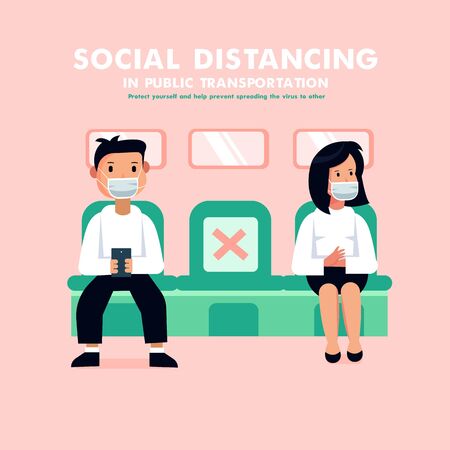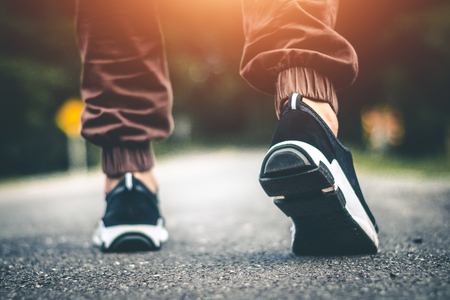1. Coming to Terms with Change
Adjusting to life after a permanent or long-term injury is an incredibly personal journey, often marked by a whirlwind of emotions. In the early days, it is natural to feel overwhelmed, uncertain, or even lost as you come to terms with a new reality. Grieving for the life you once knew is a normal part of this process, and it’s important to give yourself permission to experience these feelings without judgement. Accepting change does not mean forgetting your past or giving up on your dreams; rather, it is about acknowledging your current circumstances and finding ways to move forward with compassion for yourself. Seeking support from friends, family, or professional counsellors can be invaluable during this time. In the UK, there are dedicated services—such as local carers’ groups and NHS psychological support—that can provide comfort and practical advice. Remember, reaching out for help is a sign of strength, not weakness. By gently exploring your emotions and allowing space for both sorrow and hope, you begin to build resilience for the journey ahead.
Accessing Support Services
Adjusting to life after a permanent or long-term injury can feel overwhelming, but you are not alone. In the UK, there is a wide range of support available through the NHS and local authorities to help you regain independence and maintain your wellbeing. Understanding how to navigate these services can make a significant difference in your recovery journey.
Navigating the NHS and Local Authority Resources
The NHS offers comprehensive rehabilitation services tailored to your needs, which may include physiotherapy, occupational therapy, speech and language therapy, or pain management clinics. Your GP is usually the first point of contact and can refer you to appropriate specialists or community health teams. Local authorities also provide social care assessments that can identify equipment, adaptations at home, and personal care support you might need.
Key Support Services
| Service | Description | How to Access |
|---|---|---|
| Rehabilitation (NHS) | Therapy and medical support to aid recovery and adaptation | Request referral via your GP or hospital discharge team |
| Counselling & Mental Health Support | Emotional support for coping with adjustment | Self-refer or ask your GP; charities like Mind also offer help |
| Social Care Assessment (Local Authority) | Evaluation for personal care, equipment, adaptations | Contact your local council’s adult social services department |
| Practical Help at Home | Help with cleaning, shopping, meal preparation, personal care | Apply through your local authority or seek private providers if preferred |
| Financial Advice & Benefits Guidance | Support with claiming benefits like PIP or Attendance Allowance | Speak with Citizens Advice or visit gov.uk for guidance |
Tips for Seeking Help Effectively:
- Keep records: Note down symptoms, challenges, and questions before appointments.
- Bring someone along: A friend or family member can help advocate for your needs during assessments.
- Follow up: If you feel your needs aren’t being met, don’t hesitate to request reassessment or a second opinion.
- Explore local charities: Organisations such as Age UK, Scope, and Headway provide additional resources and peer support groups.
The journey after an injury isn’t one you have to travel alone. Accessing the right support can help you adapt more smoothly and find new ways to thrive in daily life.

3. Adapting Your Home and Daily Routines
Adjusting your living environment is a crucial step towards maintaining comfort and independence after a permanent or long-term injury. Making practical changes at home can help you navigate daily life with greater ease, dignity, and safety. Here are some gentle suggestions to help you adapt your space and routines:
Making Your Living Space Accessible
Start by evaluating the layout of your home to identify any barriers or hazards. Consider rearranging furniture to create wider pathways for wheelchairs or mobility aids. Installing ramps at entrances, grab rails in bathrooms, and non-slip mats can significantly reduce the risk of falls. If stairs are unavoidable, a stairlift might be a worthwhile investment. Think about lighting too—good visibility helps prevent accidents, especially at night.
Using Assistive Equipment
There is a wide range of assistive equipment available in the UK that can make everyday tasks more manageable. From easy-grip kitchen utensils to adjustable beds and shower chairs, these tools are designed to support your independence. Occupational therapists can offer tailored advice and recommend suitable equipment based on your individual needs. Many local councils also provide assessments and may contribute towards the cost of essential adaptations or devices.
Adjusting Everyday Activities
Maintaining your routines as much as possible can bring a sense of normality and stability. It may be helpful to break tasks into smaller steps or use timers as reminders for medication or activities. Where possible, prioritise energy conservation—sit rather than stand while preparing meals, or delegate certain chores to family members or carers when needed. Embrace technology such as voice-activated assistants or reminder apps; these small adjustments can foster independence and reduce stress.
A Gentle Reminder
Change takes time, and it’s perfectly natural to feel overwhelmed in the beginning. Remember that adapting your home and routines isn’t just about overcoming physical challenges—it’s about creating a nurturing environment where you can thrive. Be patient with yourself, seek support when needed, and celebrate each step forward, no matter how small.
4. Maintaining Independence and Wellbeing
Adapting to life after a permanent or long-term injury often means finding new ways to maintain independence and nurture your overall wellbeing. In the UK, there is a wealth of support networks and community resources designed to help you continue living life as fully as possible. Below, we share practical tips and highlight British-specific opportunities for staying independent, supporting mental health, and engaging with others.
Tips for Staying Independent at Home
- Accessible Home Adaptations: Many local councils offer grants or advice for home modifications such as stairlifts, ramps, or adapted bathrooms. Occupational therapists can assess your needs and recommend changes.
- Assistive Technology: Consider using gadgets like voice-activated devices, smart home systems, or mobility aids available through the NHS or local charities.
- Transport Solutions: The Blue Badge scheme allows those with mobility challenges to park closer to their destination. Community transport services like Dial-a-Ride can also be invaluable.
Promoting Mental Health
Your emotional wellbeing is just as important as your physical health. Here are some ways to look after your mind:
- Counselling Services: Organisations such as Mind and the Samaritans provide confidential support via phone, online chat, or face-to-face meetings.
- Peer Support Groups: Connect with others who have similar experiences through groups run by Scope, Headway, or Spinal Injuries Association.
- Mental Health Apps: Apps like Calm Harm (NHS approved) offer mindfulness exercises and coping strategies tailored for UK users.
Engaging in Community Activities
Staying connected with your community is vital for both mental stimulation and social interaction. Consider these options:
| Activity Type | Description | Where to Find Support |
|---|---|---|
| Local Clubs & Societies | Knit-and-natter groups, gardening clubs, book circles – many are accessible and welcoming. | Your local library or council website often lists available groups. |
| Sports & Leisure | Adaptive sports such as wheelchair rugby or swimming sessions tailored for varying abilities. | Disability Sports Coach, Parasport UK directory |
| Volunteering | Opportunities that fit your interests and capabilities, from befriending schemes to charity shops. | Do-it.org or local Volunteer Centres |
The Value of British Support Networks
The UK has a rich network of charities, NHS services, and local community hubs dedicated to supporting people with long-term injuries. Don’t hesitate to reach out—these organisations exist to empower you on your journey towards greater independence and wellbeing.
5. Navigating Employment and Financial Support
Adjusting to life after a permanent or long-term injury often brings significant concerns about employment and financial stability. Fortunately, the UK has a range of support systems designed to protect your rights and help you maintain independence at work. Understanding these resources can empower you to move forward with greater confidence.
Workplace Adjustments and Your Rights
If you are able and wish to continue working, your employer is legally required under the Equality Act 2010 to make reasonable adjustments for your needs. These might include changes to your working hours, provision of specialist equipment, or adaptations to the physical workspace. Open communication with your employer and occupational health services can help identify what support will best suit you.
The Access to Work Scheme
The Access to Work scheme offers practical support beyond what an employer must provide. This government programme can fund specialised equipment, travel arrangements, or even a support worker if needed. Applying for Access to Work can make a significant difference in helping you remain in employment or return to work after an injury.
Understanding Disability Rights at Work
It’s important to know your rights as an employee living with a disability or long-term condition. You are protected from discrimination at all stages of employment—including recruitment, promotion, and redundancy processes. If you feel your rights have not been respected, organisations like ACAS (Advisory, Conciliation and Arbitration Service) offer free, impartial advice.
Financial Assistance Through UK Benefits
If returning to work is not possible or only feasible part-time, several benefits may be available to provide financial security. Personal Independence Payment (PIP), Employment and Support Allowance (ESA), and Universal Credit are some of the main benefits supporting those living with long-term health conditions or disabilities. Each benefit has specific eligibility criteria, so it’s wise to seek advice from Citizens Advice or local disability charities when applying.
Seeking Further Guidance
Navigating employment and financial support after an injury can feel overwhelming, but you are not alone. Charities such as Scope, Leonard Cheshire, and local advocacy groups offer guidance tailored to your circumstances. Remember—accessing these resources is not just about assistance; it’s about empowering you to live as independently and fully as possible.
6. Building a Supportive Circle
Navigating life after a permanent or long-term injury can feel isolating, but surrounding yourself with a supportive circle is invaluable for your emotional and practical wellbeing. Connecting with others who have faced similar challenges allows you to share experiences, gain new perspectives, and find encouragement on the tougher days. In the UK, there are numerous charities and community groups dedicated to supporting people with long-term injuries—consider reaching out to organisations such as Headway, Scope, or The Silver Line for peer connections and advice.
Peer Support Groups
Joining a peer support group—whether in person or online—offers a safe space to voice concerns, celebrate progress, and exchange practical tips for daily living. Many NHS trusts and local councils provide information about local support groups tailored to specific injuries or disabilities. These groups can be lifelines, especially when you’re adjusting to a new normal and seeking understanding from those who truly ‘get it’.
Involving Family and Friends
Your loved ones play an essential role in your recovery journey. While they may not always know exactly how to help, inviting them into your world can strengthen bonds and foster mutual understanding. Share what you’re experiencing openly, let them know how they can support you best—be it helping with physical tasks or simply lending an ear—and encourage them to attend medical appointments or therapy sessions if you feel comfortable.
Staying Connected
Social connections are proven to enhance resilience and mental health. Don’t hesitate to reach out for companionship or assistance; British culture values community spirit, and neighbours often appreciate the opportunity to lend a hand. Whether it’s attending a local coffee morning, joining an accessible sports club, or participating in online forums, these interactions can uplift your spirits and remind you that you’re not alone on this journey.
7. Looking Forward with Hope
Adapting to life after a permanent or long-term injury can feel daunting, but it is also an opportunity to look forward with hope. Life may be different now, but it can still be meaningful and rewarding. One gentle step at a time, you can begin to set new goals that reflect your current circumstances and dreams for the future. These might range from small daily achievements to bigger aspirations, such as learning a new skill or reconnecting with a cherished hobby.
Embracing positive change does not mean ignoring the difficulties; rather, it means recognising your resilience and celebrating progress, however modest it may seem. Consider surrounding yourself with supportive friends, family members, or peer groups—people who understand your journey and encourage you along the way.
Moments of joy and fulfilment are often found in unexpected places: a friendly chat over a cuppa, the satisfaction of accomplishing something you thought impossible, or simply soaking up the beauty of a sunny British afternoon. Allow yourself to acknowledge these moments and cherish them.
Remember, everyone’s path is unique. There will be ups and downs, but by nurturing hope and seeking out opportunities for growth, you can find renewed purpose and happiness. Take each day as it comes, trust in your ability to adapt, and know that brighter days are ahead. You are not alone on this journey—there is always support and understanding within your community.

